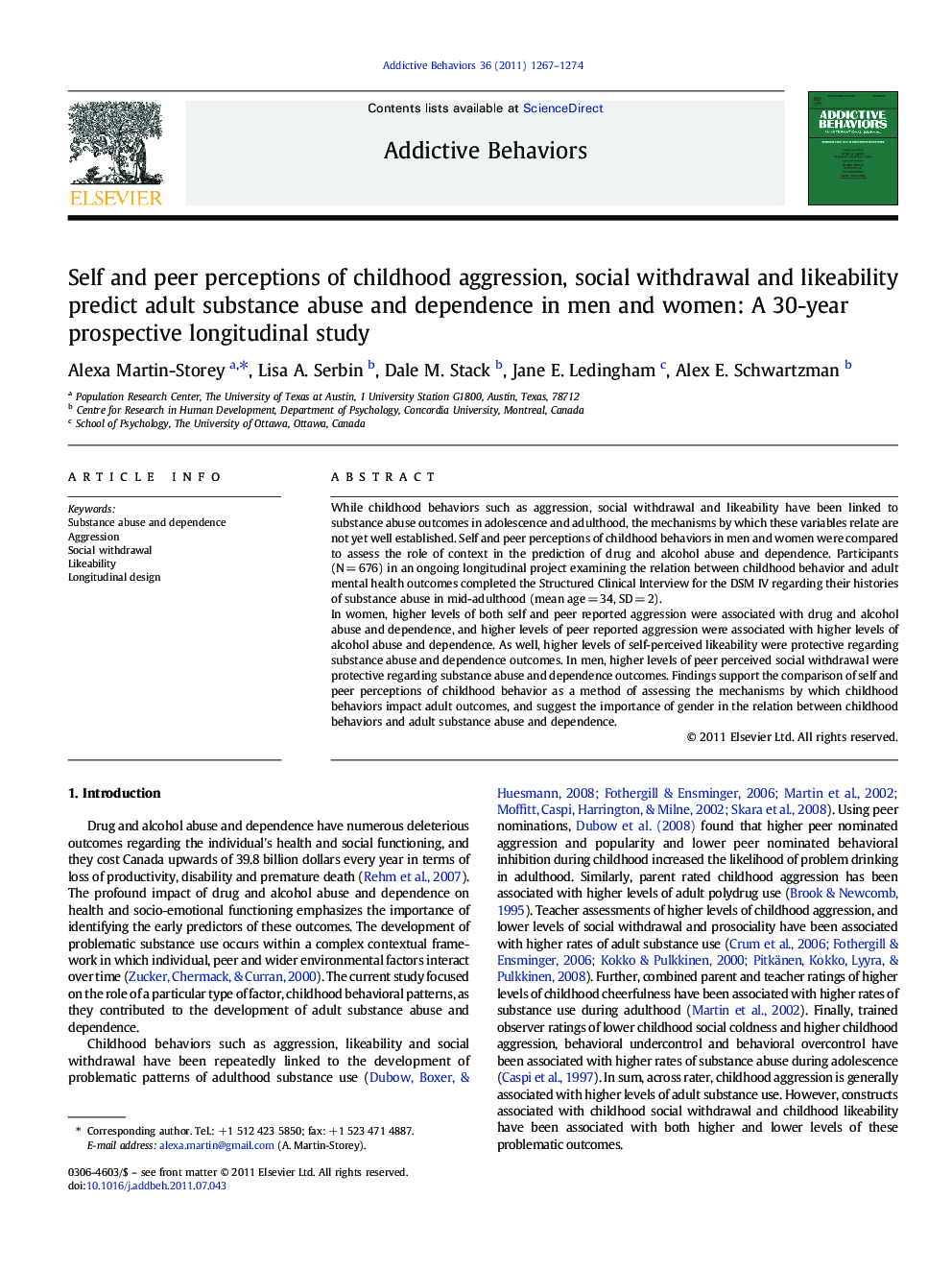| Article ID | Journal | Published Year | Pages | File Type |
|---|---|---|---|---|
| 899554 | Addictive Behaviors | 2011 | 8 Pages |
While childhood behaviors such as aggression, social withdrawal and likeability have been linked to substance abuse outcomes in adolescence and adulthood, the mechanisms by which these variables relate are not yet well established. Self and peer perceptions of childhood behaviors in men and women were compared to assess the role of context in the prediction of drug and alcohol abuse and dependence. Participants (N = 676) in an ongoing longitudinal project examining the relation between childhood behavior and adult mental health outcomes completed the Structured Clinical Interview for the DSM IV regarding their histories of substance abuse in mid-adulthood (mean age = 34, SD = 2).In women, higher levels of both self and peer reported aggression were associated with drug and alcohol abuse and dependence, and higher levels of peer reported aggression were associated with higher levels of alcohol abuse and dependence. As well, higher levels of self-perceived likeability were protective regarding substance abuse and dependence outcomes. In men, higher levels of peer perceived social withdrawal were protective regarding substance abuse and dependence outcomes. Findings support the comparison of self and peer perceptions of childhood behavior as a method of assessing the mechanisms by which childhood behaviors impact adult outcomes, and suggest the importance of gender in the relation between childhood behaviors and adult substance abuse and dependence.
► Self and peer perceptions of childhood behaviors predicted adult substance abuse outcomes. ► Less gender normative behaviors are more predictive of substance abuse and dependence outcomes. ► Interventions should focus on context in promoting substance abuse and dependence across gender.
